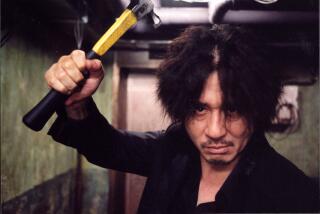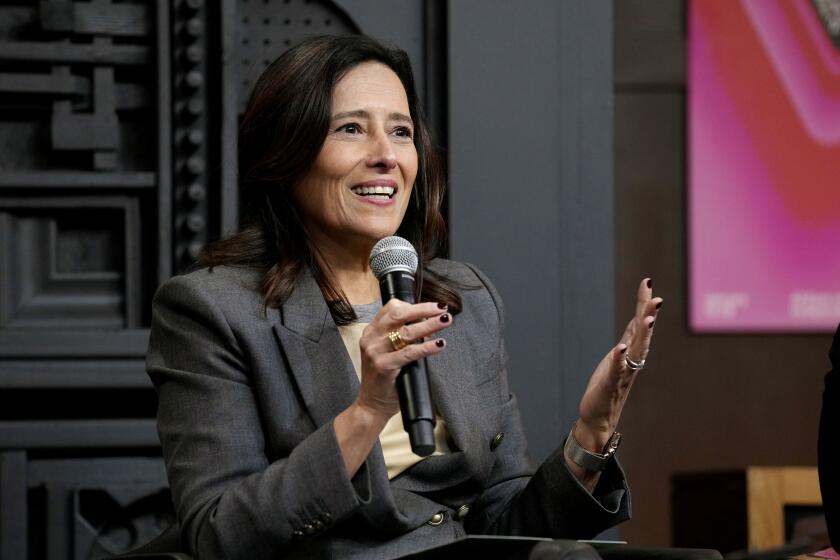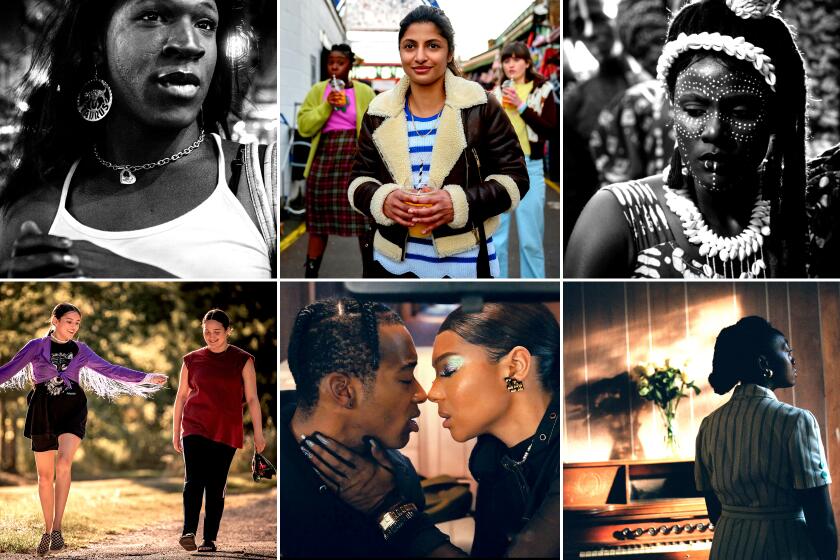Bong Joon-ho’s ‘Parasite’ and Mati Diop’s ‘Atlantics’ make history at Cannes Film Festival
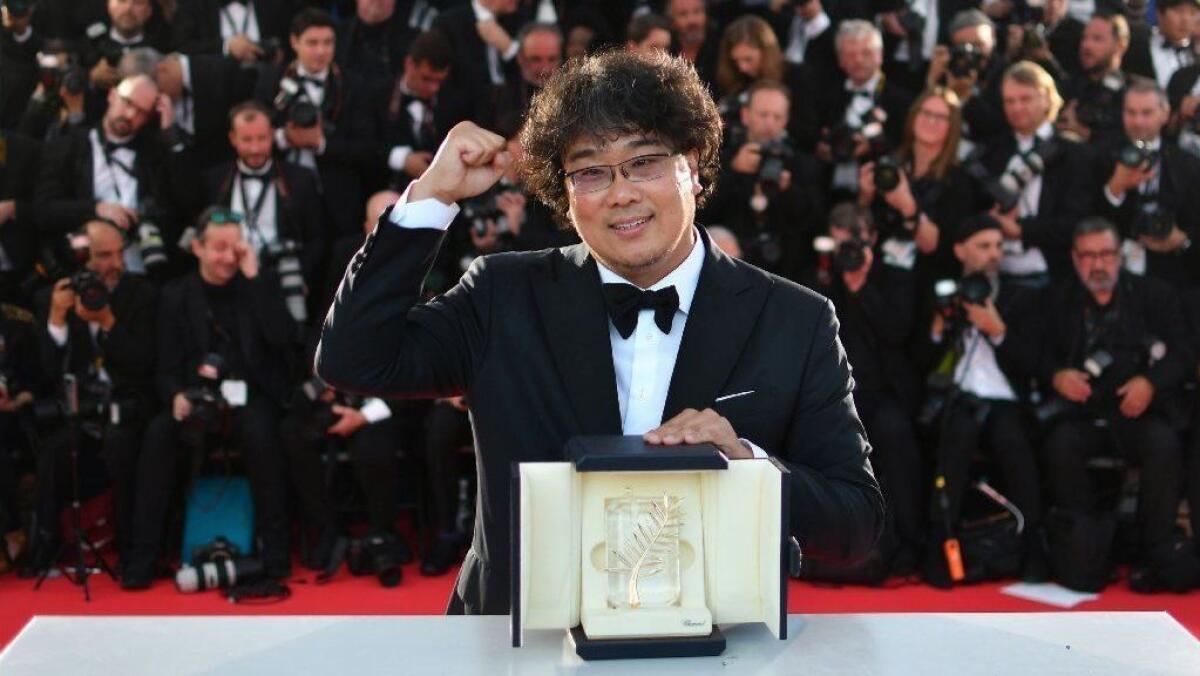
History was made and history repeated itself, albeit with a wicked twist, when Bong Joon-ho’s “Parasite” won the Festival de Cannes’ Palme d’Or on Saturday night.
Bong, whose most recent films were “Okja” and “Snowpiercer,” is the first South Korean director to win Cannes’ top prize, and his delight in the victory was visible when he shook his fist in triumph to the crowd as he approached the Palais des Festival stage.
It was the second year in a row that an Asian film took the Palme. More than that, the plot of “Parasite,” involving a family of grifters, echoed that of last year’s Japanese winner, Hirokazu Kore-eda’s warm and empathetic “Shoplifters.” But that’s where the similarities end.
“Parasite” is a savage social satire that goes further than anyone will be expecting, detailing the ways that a family of heartless manipulators mercilessly takes advantage of clueless rich folks. And that’s only the beginning.
A superb filmmaker who loves twisting the knife into genre conventions, Bong in his acceptance speech made sure to pay tribute to French director Claude Chabrol, another master of icy crime dramas.
FULL COVERAGE: Cannes Film Festival »
Taking the Grand Prix, Cannes’ runner-up prize, was a first feature, Mati Diop’s Senegal-set “Atlantics,” a haunted and haunting film about star-crossed lovers that combines supernatural elements with social consciousness. Diop became the first black female filmmaker to have a film play in Cannes competition.
“That film touched us in our hearts,” said juror Elle Fanning in the post-awards press conference. “It deals with issues, but it also felt quite personal and vulnerable and very emotional and just quite precious.”
The best actor award went to Antonio Banderas in Pedro Almodóvar’s quasi-autobiographical “Pain and Glory,” about a director at a crisis point in his life, and Banderas, who exaggerated the difficulty of climbing the stairs to the stage, paid unstinting tribute to his director.
“We made eight movies together. I respect him. I admire him. I love him,” the actor said. “The award has to be dedicated to him; I owe so much to him.
“We suffer a lot as actors; there’s a lot of sacrifice, but there are also nights of glory, and this is my night of glory.”
With both Quentin Tarantino’s “Once Upon A Time … In Hollywood” and Terrence Malick’s “A Hidden Life” shut out, the only English-language film to win a prize was the best actress award to Emily Beecham in Jessica Hausner’s “Little Joe.”
Beecham plays a scientist in this deliciously spooky film who grows plants that turn out to have a will of their own. Arrived just in time for the ceremony from Britain, she confessed she “hadn’t even brought my toothbrush.”
Twice winners of the Palme d’Or, Belgium’s Dardenne brothers took home the best director prize for “Young Ahmed,” the story of a radicalized 13-year-old boy who wants to kill a teacher he considers an apostate.
One of the Dardennes’ minor works, its award announcement drew a noticeably negative reaction in the press viewing area. Sometimes, Cannes loves its veterans too well.
Winner of the screenwriter award was French writer-director Celine Sciamma for her “Portrait of a Lady on Fire.”
Intense yet restrained, an effective mixture of old-school classic style and modern sensibility, “Portrait” is set in 18th century France and involves a growing emotional connection between two women, one a reluctant bride-to-be and the other a painter commissioned to do her portrait.
RELATED: Justin Chang’s Cannes Film Festival diary 2019 »
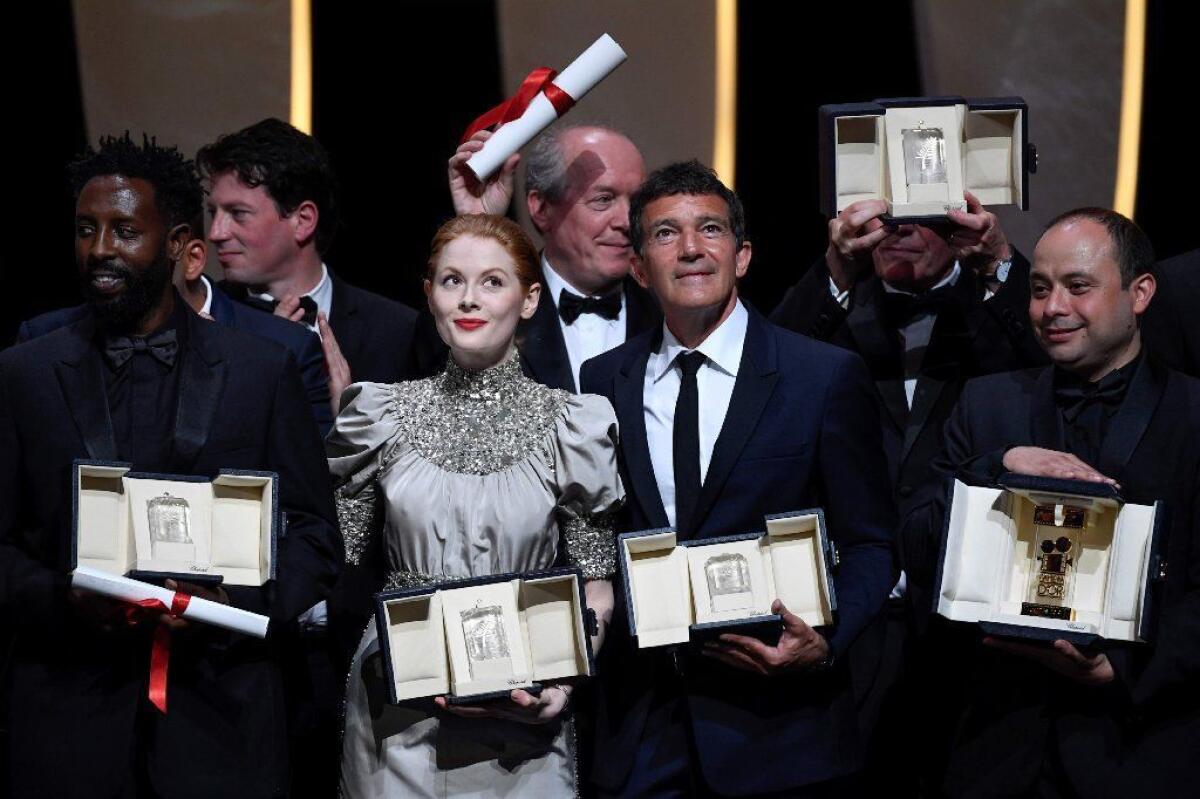
Wanting to reward as many films as possible, the jury gave a special mention to Palestinian director Elia Suleiman’s droll “It Must Be Heaven” and split the Jury Prize between two films about communities in crisis.
The first film was French director Ladj Ly’s debut feature, “Les Misérables,” a street-smart film that balances thrills and social engagement.
Set in the same outskirts-of-Paris neighborhood as the celebrated Victor Hugo novel, it follows an anticrime squad patrolling an area always about to explode.
The other film was Brazil’s “Bacurau,” a near-future drama that takes place in a small town where strange things start to happen. It was co-directed by Kleber Mendonca Filho and Juliano Dornelles.
Speaking in English, co-director Mendonca Filho talked movingly about his past at the festival.
“This is the 20th time I’ve been at Cannes, first as a journalist, then as a critic,” he said. “So you can imagine what a mind … it is for me to accept this.”
Apparently referring to a recently announced proposed cut of 23% to the Ministry of Culture’s annual budget in Brazil, the director ended with a plea:
“We are ambassadors of culture. We need your support and respect.”
Times staff writer Justin Chang contributed to this report.
More to Read
Only good movies
Get the Indie Focus newsletter, Mark Olsen's weekly guide to the world of cinema.
You may occasionally receive promotional content from the Los Angeles Times.


